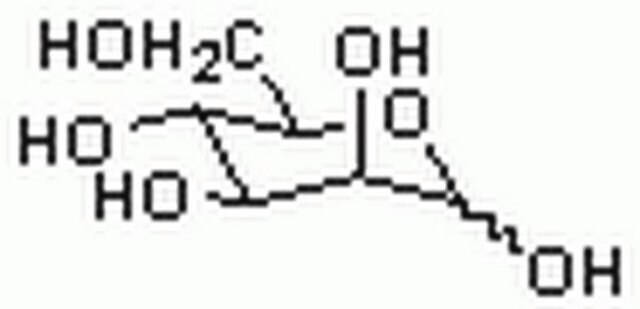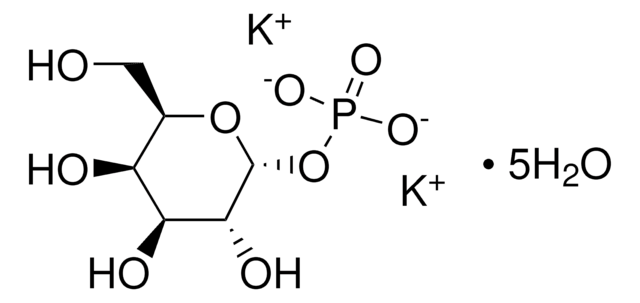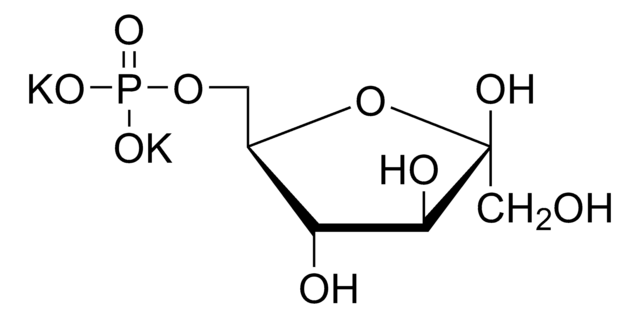About This Item
Recommended Products
biological source
synthetic (inorganic)
Quality Level
Assay
≥98% (HPLC)
form
powder
technique(s)
HPLC: suitable
impurities
<12% water (Karl Fischer)
color
white
solubility
water: 50 mg/mL, clear to cloudy, colorless
cation traces
Na: 7.3-9.0% (anhydrous)
storage temp.
2-8°C
SMILES string
[Na].OC(COP(O)(O)=O)C(O)C(O)C(O)C=O
InChI
1S/C6H13O9P.Na.H/c7-1-3(8)5(10)6(11)4(9)2-15-16(12,13)14;;/h1,3-6,8-11H,2H2,(H2,12,13,14);;
InChI key
RUFPTDNHMAGVMV-UHFFFAOYSA-N
Looking for similar products? Visit Product Comparison Guide
General description
Application
Biochem/physiol Actions
Other Notes
Storage Class Code
11 - Combustible Solids
WGK
WGK 3
Flash Point(F)
Not applicable
Flash Point(C)
Not applicable
Personal Protective Equipment
Choose from one of the most recent versions:
Certificates of Analysis (COA)
Don't see the Right Version?
If you require a particular version, you can look up a specific certificate by the Lot or Batch number.
Already Own This Product?
Find documentation for the products that you have recently purchased in the Document Library.
Customers Also Viewed
Our team of scientists has experience in all areas of research including Life Science, Material Science, Chemical Synthesis, Chromatography, Analytical and many others.
Contact Technical Service














